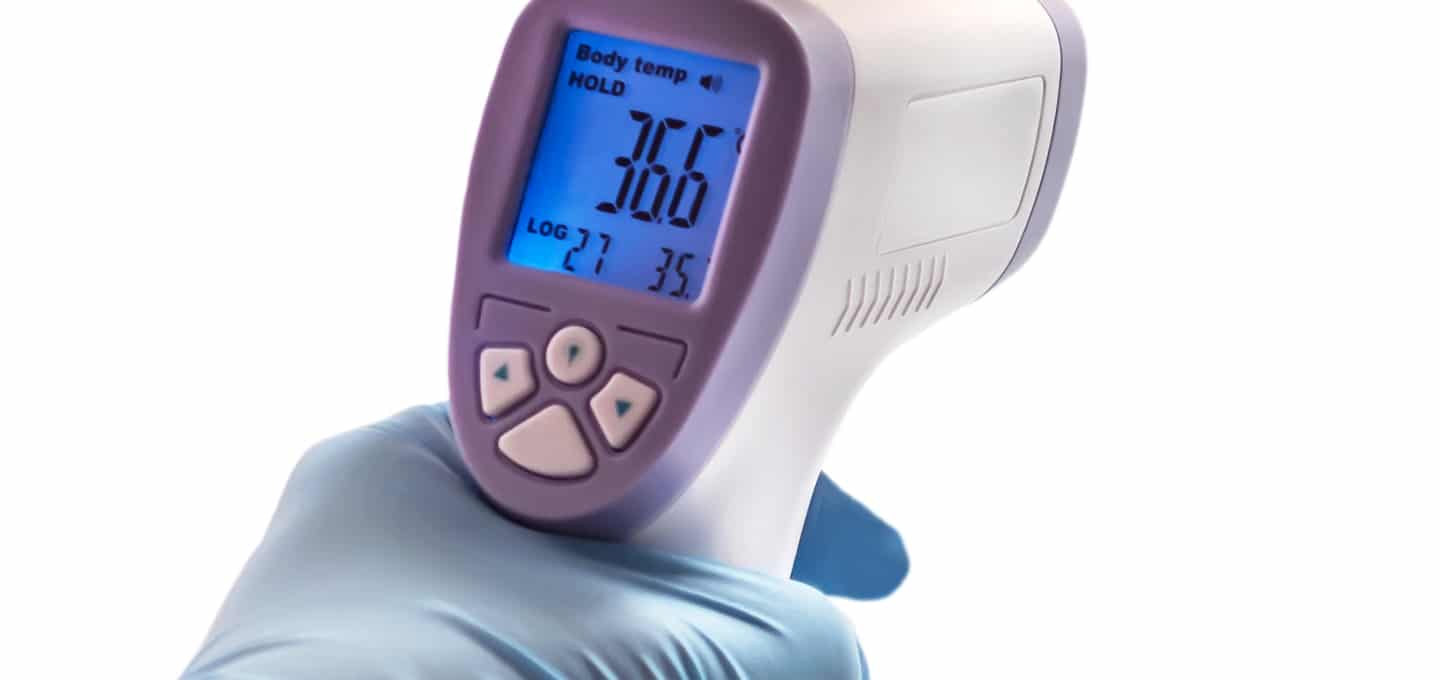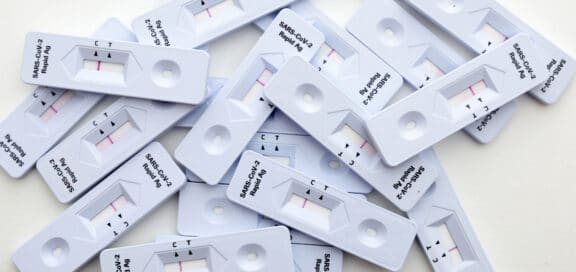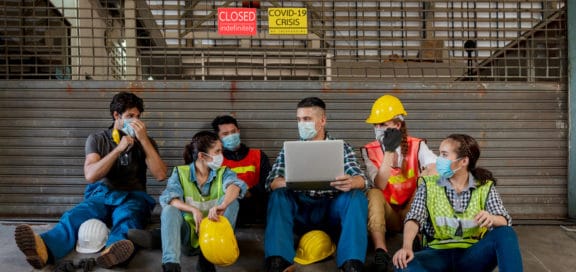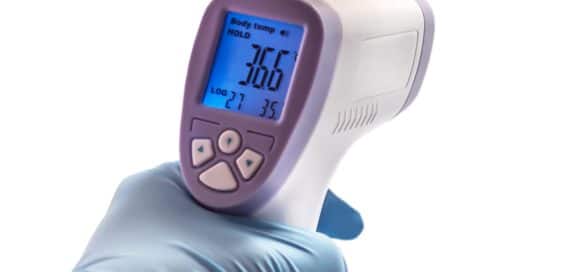1. Suitability of temperature measurement
Active temperature measurement with a thermal scanner can be carried out actively during the inspection of incoming goods at the factory or passively by requiring employees to record the temperature at home before starting work. However, the significance of the detected temperature is only of limited significance for the detection of a Covid19 infection, for the following reasons:
- The incubation period with the viral disease Covid19 can last up to 14 days. During this time the infected people are already contagious without showing any symptoms of the disease.
- Many Covid19 infections are harmless, at least without fever of the infected person.
- An elevated temperature does not necessarily indicate Covid19, it occurs with many other infections as well.
- Regarding women, menstruation can also lead to increased temperature.
Temperature scanners or the employees’ own temperature measurements are therefore only of limited use in detecting Covid19 infections.
2. Right of co-determination
In companies in which a works council exists, all regulations in the area of occupational health and safety are subject to co-determination. I.e. that the work council has a right of codetermination in the planned measures in accordance with § 87 exp. 1 No. 7 BetrVG (works constitution act). In this respect, before each introduction of a measuring method, whether locally in the enterprise or with the coworkers at home, a works agreement would have to be locked, over range of the measure, handling the determined data and consequences in case of the statement of an increased temperature. Without the prior conclusion of such a works agreement, any measurement of temperature among employees is inadmissible and the works council could therefore take legal action to prevent the introduction of temperature screening.
3. Data protection law
Further restrictions for the introduction of temperature screening follow from German data protection laws. The collection of body temperature is one of the particularly sensitive health data according to § 9 para. 1 DSGVO (GDPR). Its processing is prohibited in its entirety. Only in cases of particular danger to the workforce could the temperature measurement be justified in order to avert considerable danger to the workforce. The use of data would also have to be reduced to a minimum, i.e. the temperature measurement could at best be used to deny an employee access to the company. In the German literature on labour law, therefore, temperature measurement is only considered permissible for data protection reasons in absolutely exceptional cases, for example if a particular risk can be deduced for certain employees because they were previously travelling in high-risk regions, for example for employees who were doing business with the Webasto company in the Wuhan region or who had spent their holidays in one of the European hotspots of virus spread, such as the winter sports resort of Ischgl. Such a measure would then have to be restricted to these employees alone. Finally, special treatment could also be derived for employees if an increased number of cases of infection were detected in a particular department of the company. Overall, we therefore see considerable reservations against a general temperature screening for employees for reasons of data protection law.
4. Signal effect
After the already noted decrease of the first major wave of infection in Germany, the German government is gradually allowing a return to everyday errands, such as opening small and medium-sized shops. Unless there is a special case under point 3, the introduction of temperature measurement in the current situation would, in our view, unsettle rather than reassure employees. We would therefore advise against such a signal effect.
5. Liability of the employer
We do not see any basis for employer liability towards infected employees due to temperature controls not having been introduced. With regard to data protection laws, the employer must refrain from general controls and his duty of care ends at precisely these legal limits. The omission of operational controls is therefore legitimate and cannot lead to liability for damages.
As a result, there are considerable legal barriers to the introduction of a temperature measurement system for employees and the works council should first be consulted on this measure and a comprehensive works agreement should be concluded with it.











